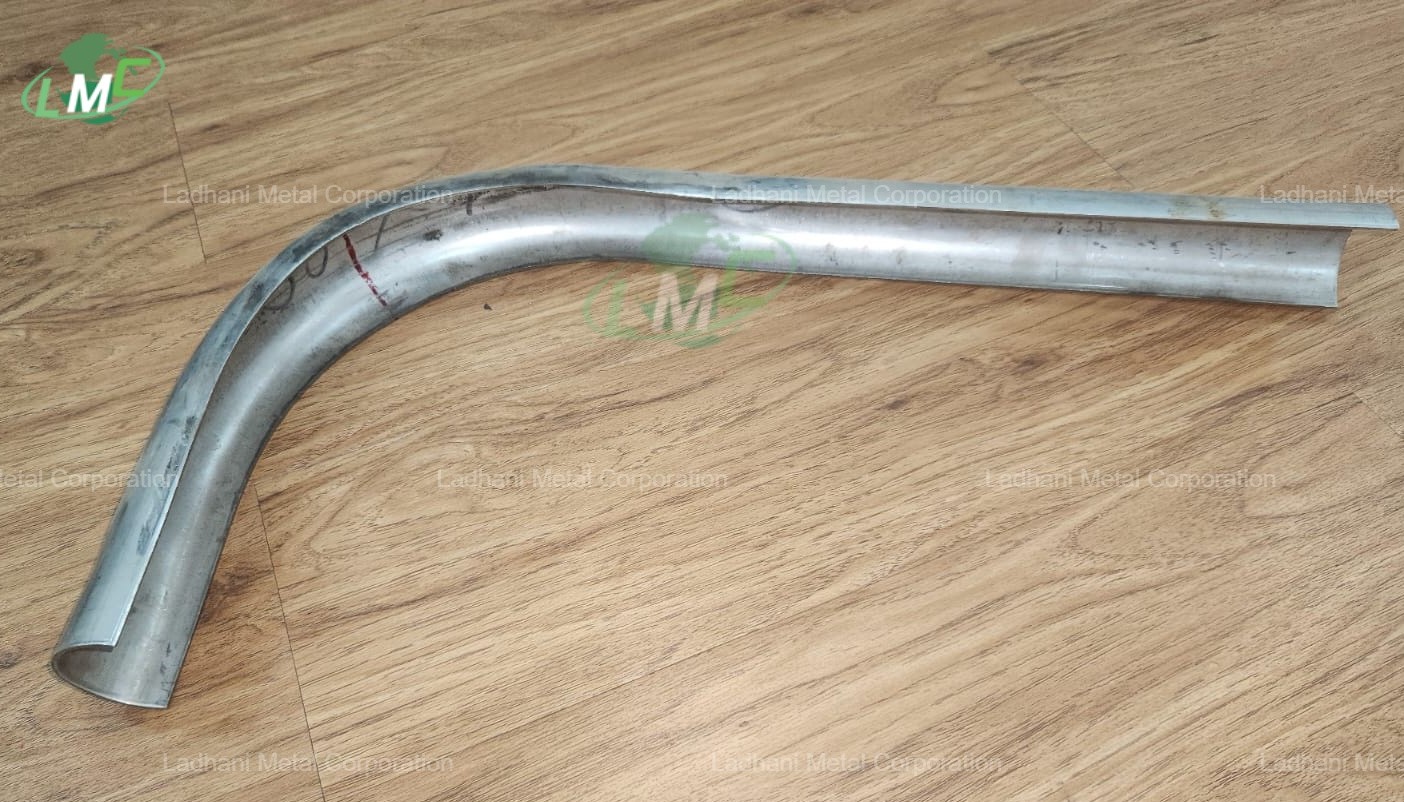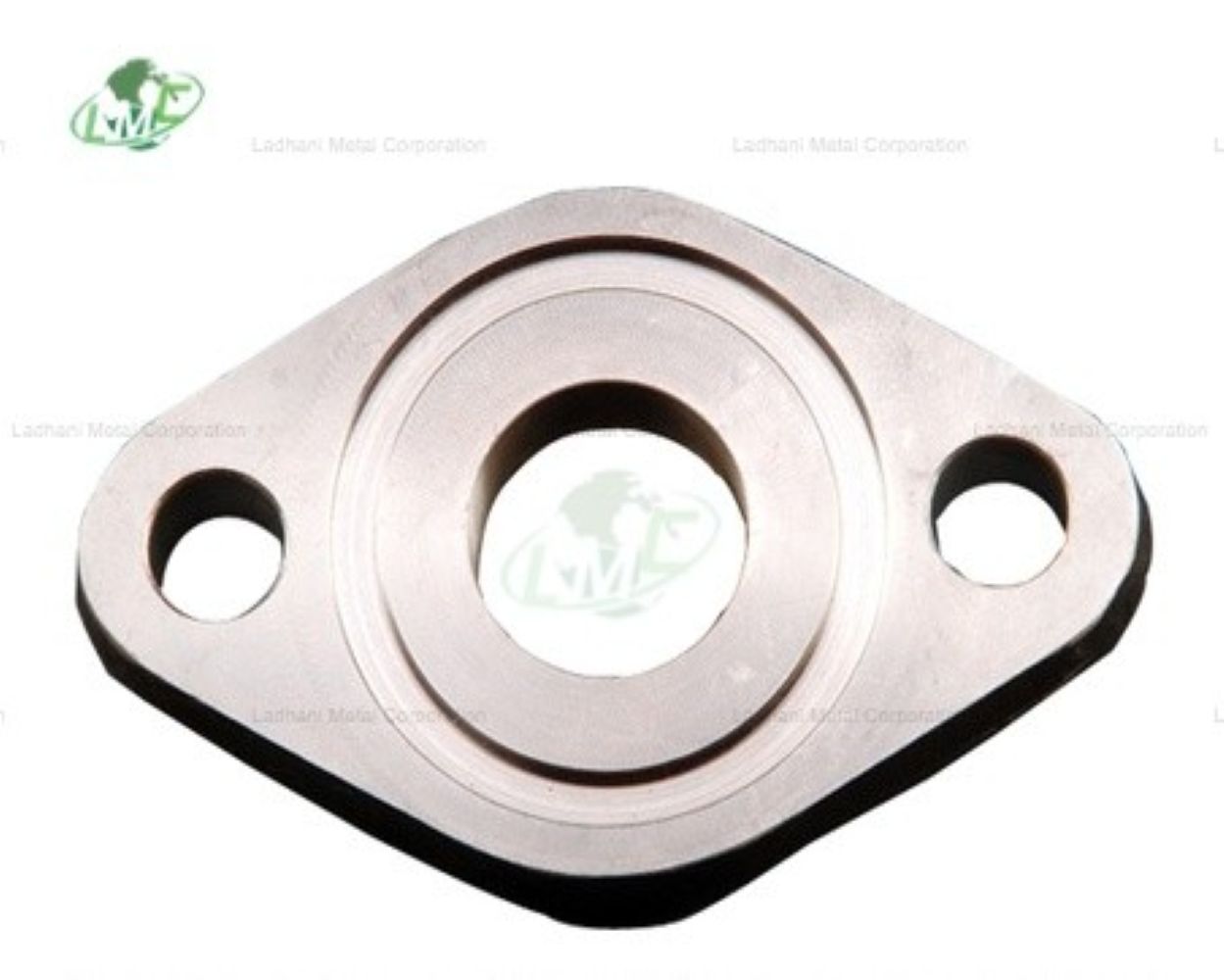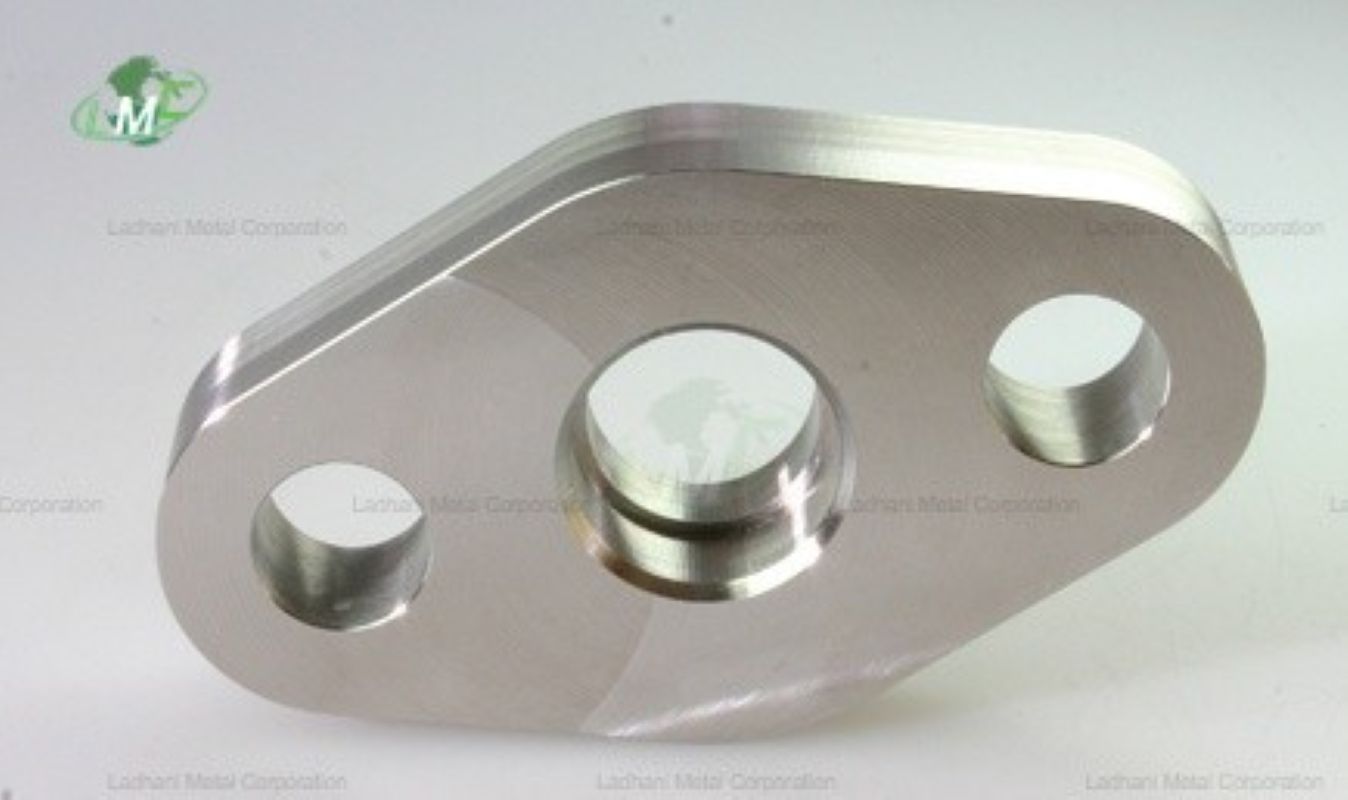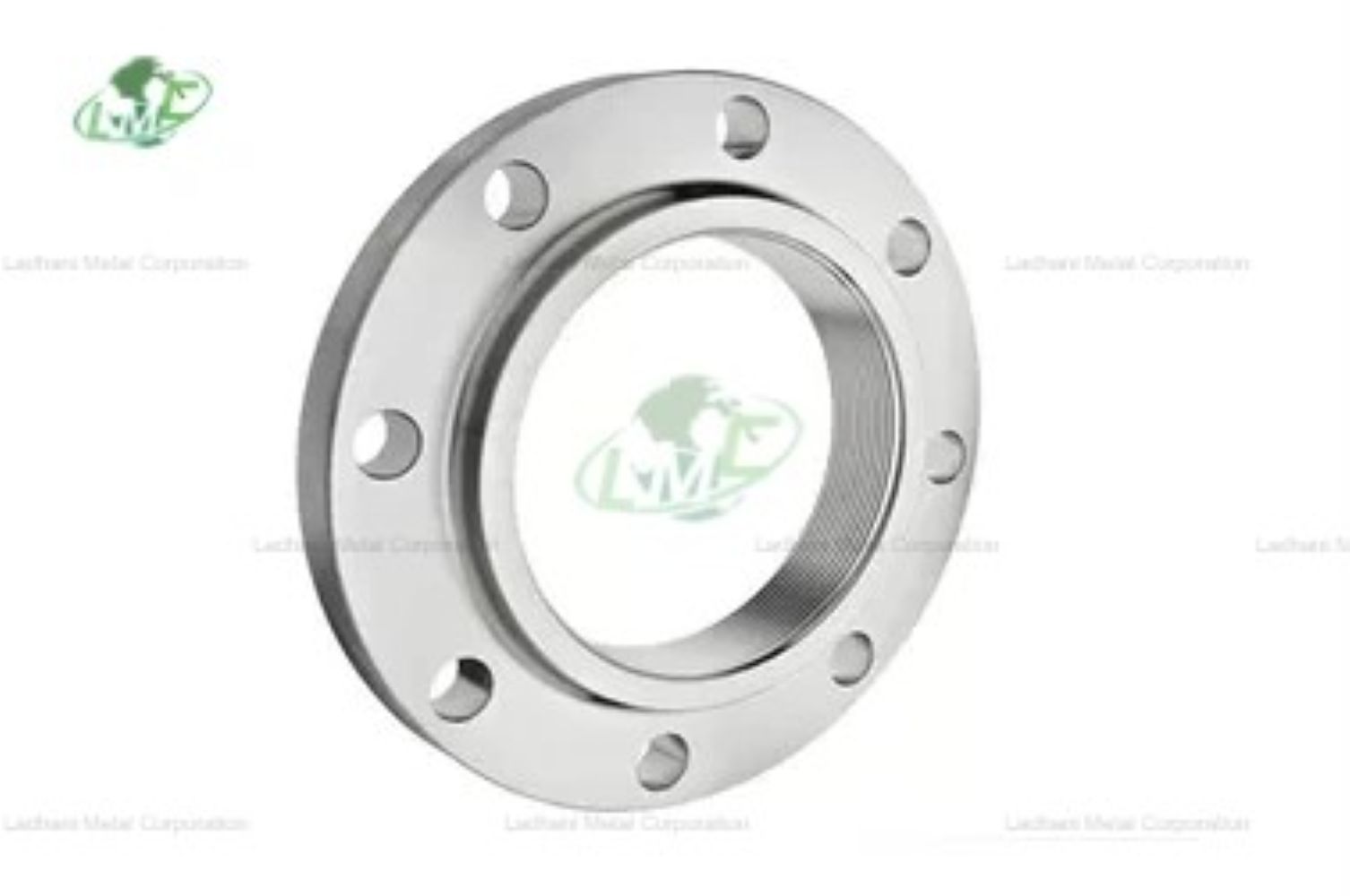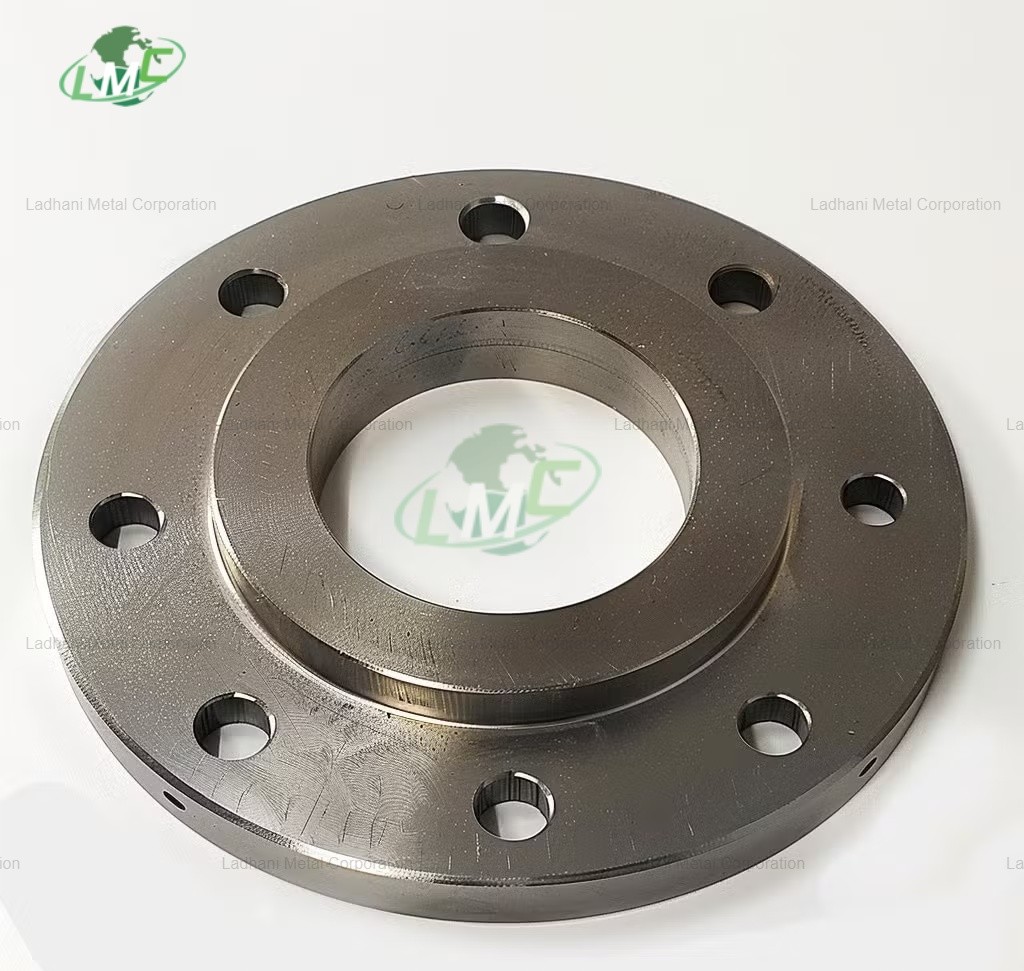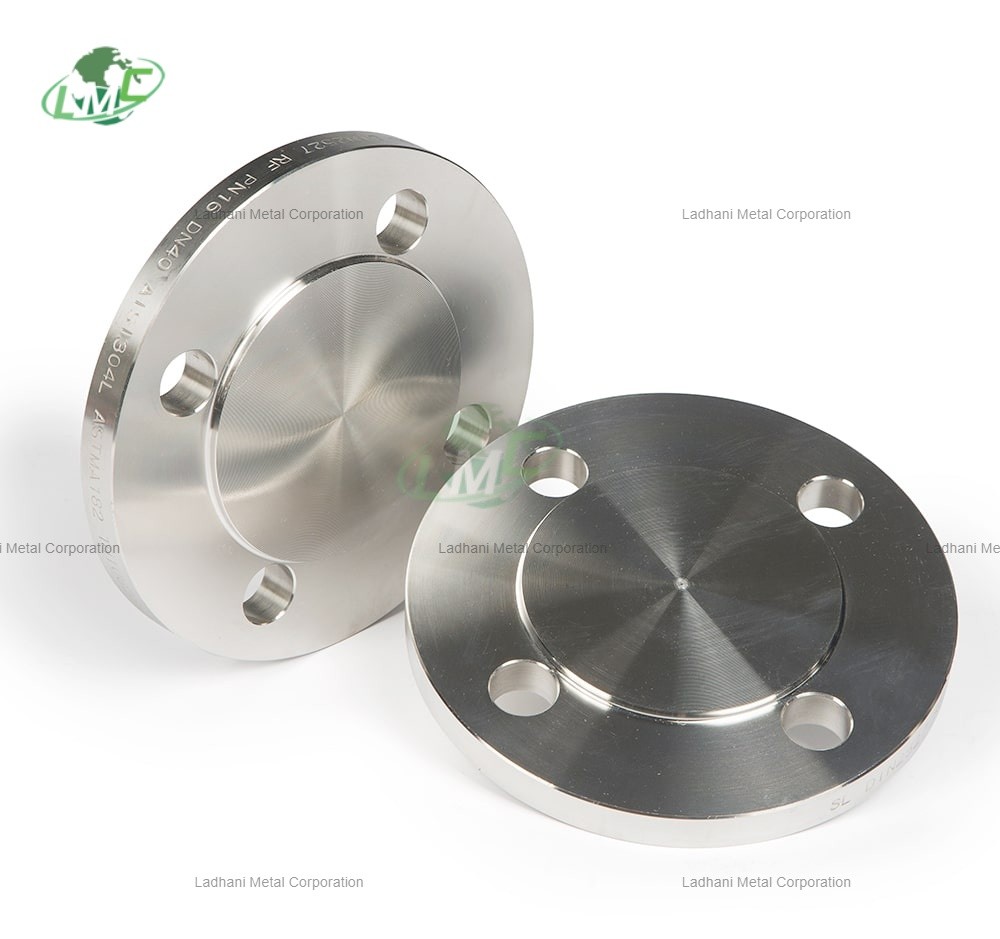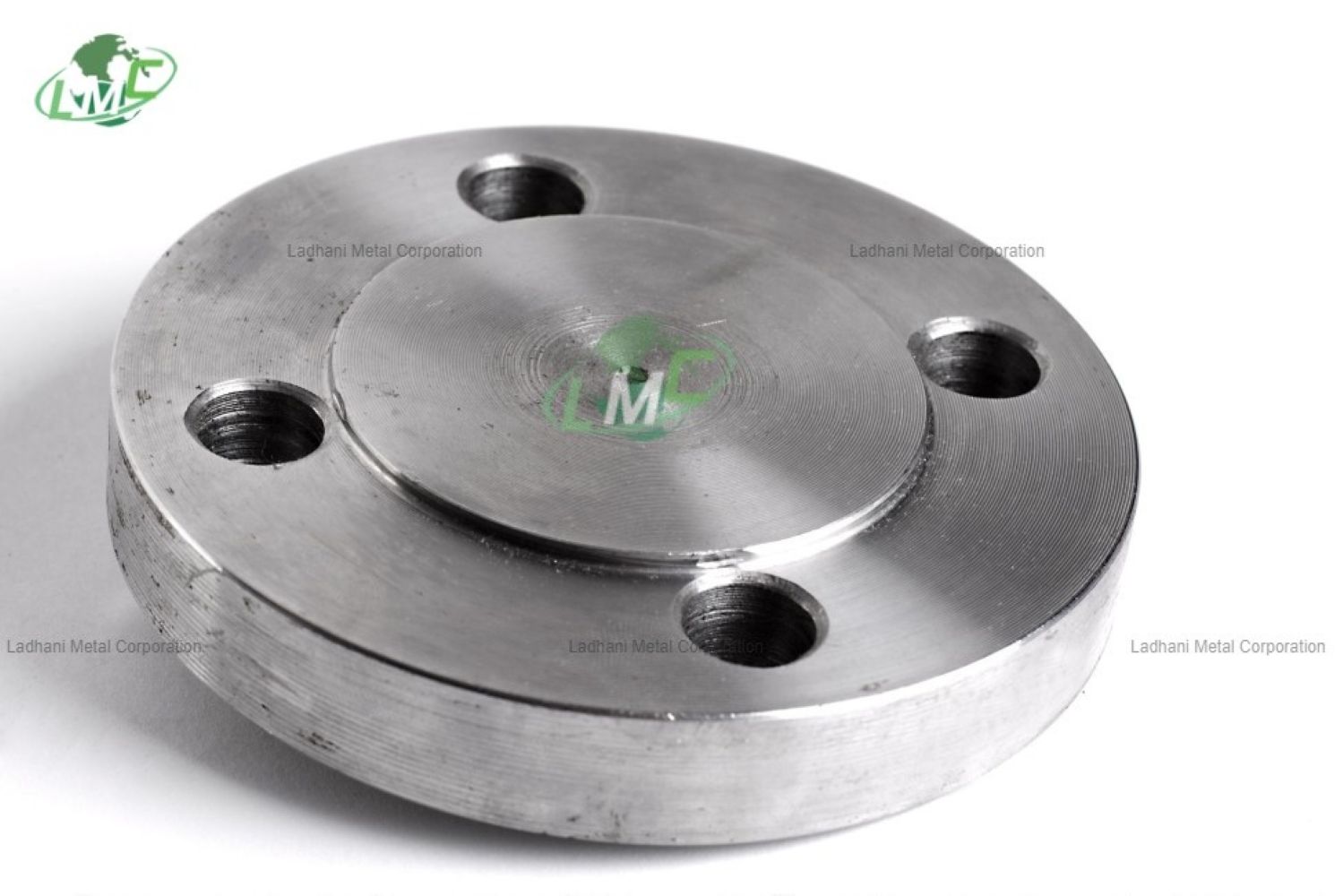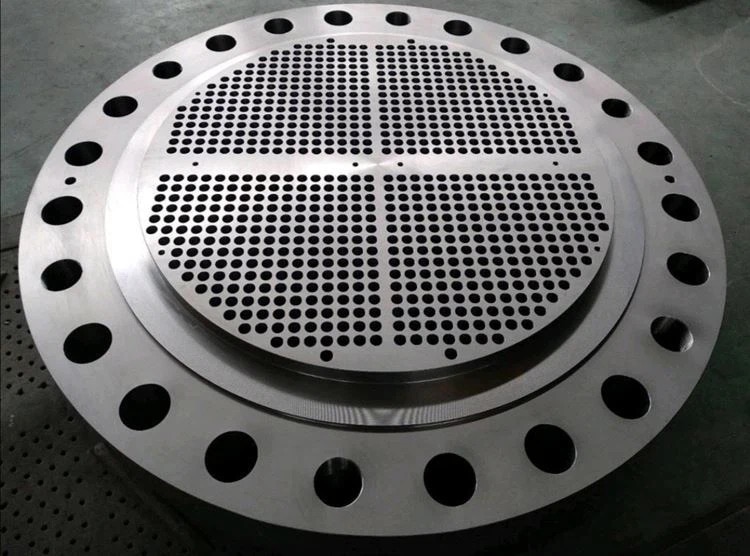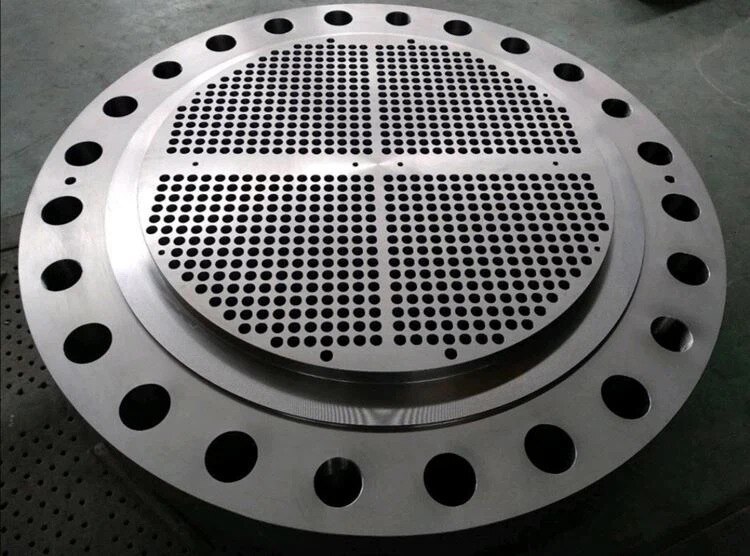Ladhani Metal Corporation offers SS 430 Outer Half Round 90 Degree Bend Tube Shields designed to protect the outer arc of U-bend and 90-degree curved tubes in boilers, heat exchangers, superheaters, and reheaters. Manufactured from ferritic stainless steel grade SS 430, these shields provide good corrosion resistance, excellent formability, and thermal stability in moderately aggressive service environments. SS 430 is particularly suitable for applications where resistance to oxidation and surface scaling is needed without exposure to highly corrosive agents. The semi-cylindrical profile is precision-formed to match the outer curvature of return tube bends, offering a physical barrier against soot-blower impact, flue gas erosion, and ash particle wear. SS 430 shields are commonly used in utility and industrial boilers operating under dry, mildly corrosive, and thermally demanding conditions. Ladhani Metal Corporation is a trusted manufacturer, supplier, and exporter of SS 430 Outer Half Round 90 Degree Bend Tube Shields, offering custom configurations to suit specific plant layouts and service requirements. SS 430 Grade Chemical Composition – Ferritic Stainless Steel • Carbon (C): ≤ 0.12% • Manganese (Mn): ≤ 1.00% • Phosphorus (P): ≤ 0.040% • Sulfur (S): ≤ 0.030% • Silicon (Si): ≤ 1.00% • Chromium (Cr): 16.0 – 18.0% • Nickel (Ni): ≤ 0.75% • Iron (Fe): Balance Applications: Ideal for power plants, WHRBs, HRSGs, and general industrial systems requiring protection for tube bends in dry heat and oxidizing environments. Uses • Shielding outer 90-degree bends in superheaters and reheaters • Applied in WHRBs and HRSG return coils exposed to dry flue gas • Protects against moderate erosion and oxidation in utility boilers • Suitable for curved tubes in industrial furnaces and heat recovery units Features • Cost-effective protection – Combines durability with economical material choice • Oxidation resistance – Performs well in clean flue gas and dry heat exposure • Thermal reliability – Withstands repeated heating cycles without deformation • Custom-fit geometry – Formed to match exact bend radius for tight coverage • Versatile installation – Can be clamped, banded, or tack welded as needed • Multiple sizes – Offered in a variety of thicknesses, lengths, and radii Applications • Thermal power stations – Shields steam lines and return bends from surface scaling • Waste heat boilers – Guards tube bends in clean gas recovery systems • Process heaters – Used in less corrosive gas heating environments • Cement and food processing industries – Protects tube curves from oxidation Conclusion The SS 430 Outer Half Round 90 Degree Bend Tube Shield by Ladhani Metal Corporation provides durable and cost-efficient protection for tube bends exposed to dry heat, oxidation, and moderate wear. With good formability and thermal performance, these shields are ideal for systems where corrosion levels are controlled but mechanical shielding is essential. For custom sizing, material selection, or technical specifications, contact Ladhani Metal Corporation. #Mumbai #Pune #Ahmedabad #Vadodara #Surat #Rajkot #Jamnagar #Bharuch #Ankleshwar #Vapi #Delhi #Faridabad #Ghaziabad #Noida #Gurugram #Chennai #Coimbatore #Tiruchirappalli #Hyderabad #Visakhapatnam #Vijayawada #Bangalore #Mangalore #Mysore #Kolkata #Durgapur #Asansol #Bhubaneswar #Rourkela #Raipur #Bhilai #Bilaspur #Nagpur #Nashik #Aurangabad #Indore #Bhopal #Jabalpur #Kanpur #Lucknow #Varanasi #Jaipur #Kota #Udaipur #Jodhpur #Chandigarh #Ludhiana #Jalandhar #Haridwar #Dehradun #Agra #Meerut #Aligarh #Moradabad #Bareilly #Mathura #Gwalior #Rewa #Satna #Sagar #Ujjain #Ratlam #Solapur #Kolhapur #Amravati #Akola #Jalgaon #Latur #Sangli #Nanded #Gandhinagar #Bhavnagar #Mehsana #Surendranagar #Junagadh #Nadiad #Nizamabad #Karimnagar #Warangal #Kurnool #Nellore #Tirupati #Salem #Erode #Madurai #Tirunelveli #Thoothukudi #Belgaum #Hubli #Tumkur #Hassan #Cuttack #Sambalpur #Jamshedpur #Ranchi #Dhanbad #Patna #Gaya #Muzaffarpur #TubeShield #HalfTubeShield #SSHalfRoundShield #BoilerTubeShield #BoilerShield #TubeProtection #Tubeshieldmanufacturer #BoilerTubeProtection #SSTubeShield #MetalIndustry #SteelFabrication #IndustrialShielding #SS304Shield #SS316Shield #StainlessSteelShield #WeldOnShield #WeldedTubeShield #TubeCladding #BoilerTubeSleeve #TubeSleeve #MetalFabrication #PowerPlantSupplies #RefineryEquipment #ProcessIndustry #MetalComponent #TubeShieldForBoilers #BoilerParts #SteelSolutions #TubeShieldManufacturer #TubeShieldSupplier #SSShielding #IndustrialTubeShield #BoilerTubeGuard #CustomMetalParts #SteelIndustryIndia #MetalEngineering #HeavyIndustrySupply #StainlessSteelIndia #SteelExporters #MetalComponentExport #FabricatedProducts #SteelDealer #IndustrialSupplyIndia #BoilerTubeFittings #TubeShieldingSolutions #HalfTubeCover #HeatExchangerShield #halftubeshield #utypehalftubeshield #tubeshieldexporter
Send Message
